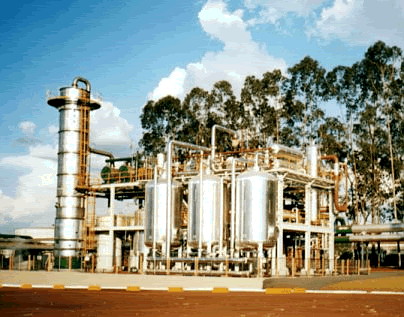China to save 100 million tonnes of coal by boosting biomass for power
 China's rapid economic development has been almost entirely fuelled by coal. The country has enough reserves and supplies to allow it to continue to grow its economy. But China's coal industry is under pressure, not only because it is based on old, unsafe mines (which are being closed), but more importantly because the fuel is turning the People's Republic rapidly into the world's biggest polluter. If China continues to burn coal at its current pace, all climate change mitigation efforts by all other industrialised countries combined, would be in vain.
China's rapid economic development has been almost entirely fuelled by coal. The country has enough reserves and supplies to allow it to continue to grow its economy. But China's coal industry is under pressure, not only because it is based on old, unsafe mines (which are being closed), but more importantly because the fuel is turning the People's Republic rapidly into the world's biggest polluter. If China continues to burn coal at its current pace, all climate change mitigation efforts by all other industrialised countries combined, would be in vain.Between 75% and 80% of China's electricity is generated by burning coal. Another 20% comes from large-scale hydropower projects, with most of the rest coming from nuclear stations. In 2006, China consumed some 2.1 billion tons of the dirty fuel. Predictions that assume a 'business-as-usual' scenario suggest that total energy demands will rise to the equivalent of 3.5 billion tons of coal per year by 2020 - which would be a true disaster.
For this reason, finding ways to reduce coal consumption is a top priority for the Chinese government. To achieve this, two major and obvious paths are being investigated: increasing the efficiency of power plants, and substituting coal with cleaner alternatives.
It is within this context that the Chinese government is seriously investing in biomass R&D and in getting green power plants operational as fast as possible. Earlier this week, the country's first self-developed 100% straw-burning power generation project has begun pilot operation in Suqian, in east China's Jiangsu Province, according to the China Energy Conservation Investment Corporation (CECIC). The 248 million yuan (€24/US$31 million) project is expected to burn between 170,000 and 200,000 tons of rice and wheat straw and will generate 132 million Kwh of electricity per year, says Yang Xincheng, general manager of CECIC.
Each year in China, around 140 million tons of straw and crop stalks are burned in the open air on farmers' fields or on nearby highways. The energy contained in this enormous amount of agricultural residues not only goes to waste, the burning biomass also releases vast amounts of carbon dioxide into the atmosphere. By substituting coal with this biomass that is otherwise burned, China can reduce CO2 emissions two times.
By making full use of the resource, China can save the equivalent of 100 million tons of coal, Yang says:
 bioenergy :: biofuels :: energy :: sustainability :: coal :: climate change :: rice straw :: residues :: biomass ::China ::
bioenergy :: biofuels :: energy :: sustainability :: coal :: climate change :: rice straw :: residues :: biomass ::China :: In the future, dedicated, non-food energy crops might be planted to supply more biomass. The Chinese government has approved the construction of over 30 biomass power plants so far. Some are already being built, others will begin construction soon.
Foreign investments and scientific assistance is focused on biomass projects as well. A consortium of European research institutes, united in the China-EU Bioenergy project, recently announced that it is going to help China with co-firing biomass in coal plants. According to the project leader, precisely because China's economy is growing so fast and because its energy challenges are so great, the country offers enormous possibilities for bioenergy to make a major contribution to improving the global environment.
China-EU Bioenergy will share the results with the European co-firing industry and help companies form technology partnerships with Chinese power stations (earlier post).
Article continues
 --------------
--------------


 Côte d'Ivoire's agriculture minister Amadou Gon has visited the biofuels section of the Salon de l'Agriculture in Paris, one of the largest fairs of its kind. According to his communication office, the minister is looking into drafting a plan for the introduction of biofuels in the West African country.
Côte d'Ivoire's agriculture minister Amadou Gon has visited the biofuels section of the Salon de l'Agriculture in Paris, one of the largest fairs of its kind. According to his communication office, the minister is looking into drafting a plan for the introduction of biofuels in the West African country.

 Finally, a smart form of investing. Instead of pouring money into uncompetitive, low yielding, low GHG-mitigating biofuels based on crops grown in temperate climates (such as corn or rapeseed), the British fund
Finally, a smart form of investing. Instead of pouring money into uncompetitive, low yielding, low GHG-mitigating biofuels based on crops grown in temperate climates (such as corn or rapeseed), the British fund  Today sees the start of operations at the Pliening biogas plant, one of the largest of its kind in Germany. Following the official approval by inspectors, the facility located near Munich will
Today sees the start of operations at the Pliening biogas plant, one of the largest of its kind in Germany. Following the official approval by inspectors, the facility located near Munich will  Over the past few years, a lot of effort has gone into the development of efficient, environmently friendly car engines and propulsion technologies. But, as we said
Over the past few years, a lot of effort has gone into the development of efficient, environmently friendly car engines and propulsion technologies. But, as we said 






Friday, December 22, 2006
Ethanol boosts farmland prices in the US
The price (and abundance) of farmland is one of the factors that makes investing in the biofuels industry in the global South so interesting. Compared with land markets in the EU or the US, farmland there is exceptionally competitive. Drawing on our earlier overview of land values in Africa, we recall that prices per hectare in for example Mozambique and Tanzania are estimated to be below US$100 per hectare (earlier post). In the new global energy system that is developing, biomass and land are strategic resources. Just like in the pre-fossil fuel era, control over land once again becomes a key driver of the economy. In this respect, the global South has a strategic advantage over the North.
In Iowa, farmland prices have hit record highs four years in a row. The average price of an acre of land there increased $290, up 10 percent from last year (click map). For the first time since 1941, when Iowa State began the survey, the average price of an acre of Iowa farmland topped $3,000. The higher price of corn and expectations that farmers will plant fewer soybean acres next year led to the rapid run-up in corn and soybean prices during harvest, an extremely unusual occurrence.
One of the effects of the higher land values is that land rental rates also are increasing. That will make it harder for beginning American farmers, who tend to be less financially able to pay higher rental rates:
"I'm very concerned about what we are seeing for rents," Duffy said. "Gaining access to land is becoming even more difficult for beginning farmers." The record price put the state's 32.6 million acres of farmland at a worth of about $105 billion.
"That's important because it means the overall worth of Iowa farmland owners has increased and their purchasing power has increased," Duffy said. "Iowa is an agricultural state and we should recognize that changes in land values have an impact on the state's economy."
Duffy said for the first time in years, the land survey showed the number of existing farmers buying farmland increased and the number of nonfarmer investors declined.
That's another indication that farmers are becoming more aggressive buyers because of higher crop prices and expectations that ethanol has moved farming into a new era, Duffy said.
Outside investors might have backed away from the farmland market because of potentially higher returns from the stock market and a feeling farmland prices have peaked as an investment, Duffy said.
"Farmers don't buy land as an investment," he said. "They buy land for its value as an asset. There's a different motivation there."
Duffy said the survey showed that farmland prices increased in all of Iowa's 99 counties and exceeded $4,000 an acre in seven counties. Prices topped $1,400 an acre in every county for the first time since Iowa State began conducting the survey in 1941.
More information:
Iowa State University Extension Service: 2006 Iowa Land Value Survey
Iowa State University: Iowa Farmland Value at Record Level for Fourth Year in a Row - Dec. 19, 2006.
Biopact: Land Prices in Africa - Sept. 15, 2006
Article continues
posted by Biopact team at 8:30 PM 0 comments links to this post